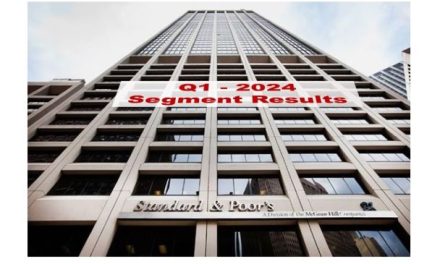Despite Previous Loan Defaults, 88% of North American Businesses Still Believe Loan Applications Will Be Approved in 2023, Finds Creditsafe Study
Loan bailouts have become a common occurrence and safety net for large businesses teetering on the edge of bankruptcy. But these bailouts may be lulling companies into a false sense of financial security, according to the ‘Feeling the Recession Pinch’ research study released by Creditsafe.
Even though one-third of North American businesses admitted to defaulting on loans in the last 12 months, a whopping 88% still believe their loan applications would be approved in 2023. What’s more, the study reveals that 85% of businesses are owed money by their customers – indicating cash flow may not be as strong as it should be.
 Matthew Debbage, CEO of the Americas and Asia for Creditsafe, explains how this false sense of security could become the downfall of businesses. “Many businesses have come to rely on loans as a safety net, so much so that they aren’t all that concerned or even aware of the state of their financial affairs. And they rarely know what factors lenders take into consideration when reviewing loan applications, let alone what their business credit reports say about their company’s financial health and credit risk.
Matthew Debbage, CEO of the Americas and Asia for Creditsafe, explains how this false sense of security could become the downfall of businesses. “Many businesses have come to rely on loans as a safety net, so much so that they aren’t all that concerned or even aware of the state of their financial affairs. And they rarely know what factors lenders take into consideration when reviewing loan applications, let alone what their business credit reports say about their company’s financial health and credit risk.
So, the chances of securing a loan could be significantly lower if a company’s credit report shows various financial and legal issues, such as a high amount of past due payments owed to suppliers, a significant number of lawsuits as well as a high DBT (Days Beyond Terms) score. Combined, these problems signal that revenue may be declining, financial management practices aren’t very strong and cash flow could be a serious problem. And you can bet these financial issues will give lenders cause for concern and make them more likely to reject a loan application. As optimistic and hopeful as business leaders might be about their loan approval chances, hope will never win over credit risk data and fiscal responsibility.”
Key findings from the research study include:
- Recession fears have businesses panicking about missed payments, layoffs and bankruptcy. Nearly two-thirds of North American businesses (64%) believe a recession will have a moderate to severe impact on their business. Their top three recession fears are: struggling to get paid by customers (33%), layoffs (28%) and business closure or bankruptcy (10%). These fears are warranted given that 85% of the surveyed companies reported being paid late by their customers. Of that 85%, 42% of businesses are paid late by 11-30% of their customers and nearly one in 10 businesses are owed money from over 30% of their customers.
- Crippling debt and soaring borrowing costs will put struggling businesses in a chokehold. Our study found that 28% of North American businesses expect to rack up between $500,000 and $3 million in debt over the next 6 to 12 months. Meanwhile, 7% expect their debt to exceed $3 million. On top of this, more than two-thirds (67%) of businesses expect borrowing costs to increase this year.
- Falling revenue and lower inventory turnover push cash flow into the red. According to our study, 36% of North American businesses saw their cash flow decrease in the last 12 months. The top three reasons for cash flow dropping were cited as a decrease in net income (25%), changes in working capital (23%) and lower inventory turnover (21%).
- Due diligence (or lack of) could be the biggest cause of cash flow problems. Given how turbulent the economy is right now, you would expect companies to be extra cautious about who they work with and do everything possible to make sure they get paid. But our study found this to be far from the case, with 36% of businesses admitting they sign contracts with new customers without running a business credit check. What’s even worse is that 26% of businesses admitted they either rarely or never run credit checks on their existing customers.
 Thea Dudley, a seasoned expert with over 30 years of credit management experience and author of The Credit Overlord’s Guide to Credit & Collections, explains that she’s seen her fair share of businesses struggling to get paid, with upwards of 30% of customers paying late.
Thea Dudley, a seasoned expert with over 30 years of credit management experience and author of The Credit Overlord’s Guide to Credit & Collections, explains that she’s seen her fair share of businesses struggling to get paid, with upwards of 30% of customers paying late.
“If I had a penny for every time a company missed the due date for paying its invoices, I’d be a billionaire by now.” The sad truth is that late customer payments have become more of a rule than an exception these days. But when a company’s finance team tries to lay down the law and hold customers accountable to pay within terms, sometimes business leaders will let it slide out of fear that they’ll lose the business or ruffle a longtime customer’s feathers. But if a customer pays you late repeatedly and you’re not seeing most or any of that income in your account, why would you be so lenient with them?
Being too lenient with customers simply because you’re afraid to lose their business could end up draining your own business and put you on the path to eventual closure or bankruptcy. The businesses that will thrive this year will be the ones that are proactive, data-driven and take due diligence seriously by running credit checks on both new customers and existing customers throughout their lifecycle. The outlook won’t be good for any business that doesn’t do this.”
Survey Methodology
The study surveyed over 365 senior-level finance, accounting, strategy/planning and procurement executives working in small, mid-sized and large businesses in the United States and Canada. The goal was to understand how a recession will impact North American businesses and to get a clear picture of their fiscal management practices, cash flow challenges and budgeting priorities.
 Source: prnewswire.com
Source: prnewswire.com


























